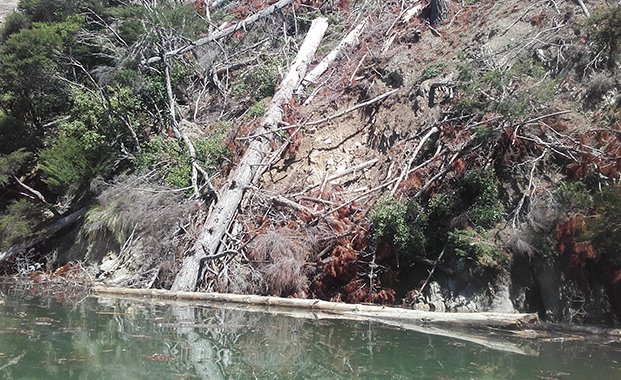The Conversation: Why proposed changes to forestry rules won’t solve the ‘slash’ problem
27 June 2025 | News
On The Conversation, Lincoln University's Dr Steve Urlich, along with the University of Canterbury's Dr Mark Bloomberg, discusses how the current proposed changes by the government to the National Environmental Standards for Commercial Forestry aren't going far enough to address the core issues surrounding slash and sediment discharges.
The biggest environmental problems for commercial plantation forestry in New Zealand’s steep hill country are discharges of slash (woody debris left behind after logging) and sediment from clear-fell harvests.
During the past 15 years, there have been 15 convictions of forestry companies for slash and sediment discharges into rivers, on land and along the coastline.
Such discharges are meant to be controlled by the National Environmental Standards for Commercial Forestry, which set environmental rules for forestry activities such as logging roads and clear-fell harvesting. The standards are part of the Resource Management Act (RMA), which the government is reforming.
The government revised the standards’ slash-management rules in 2023 after Cyclone Gabrielle. But it is now consulting on a proposal to further amend the standards because of cost, uncertainty and compliance issues.
We believe the proposed changes fail to address the core reasons for slash and sediment discharges.
We recently analysed five convictions of forestry companies under the RMA for illegal discharges. Based on this analysis, which has been accepted for publication in the New Zealand Journal of Forestry, we argue that the standards should set limits to the size and location of clear-felling areas on erosion-susceptible land.
Read the full article on The Conversation here >>
You can also sign up to receive The Conversation newsletter here >>


